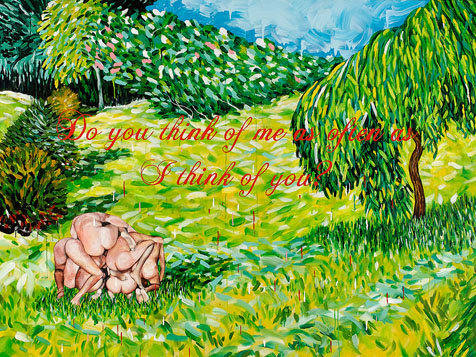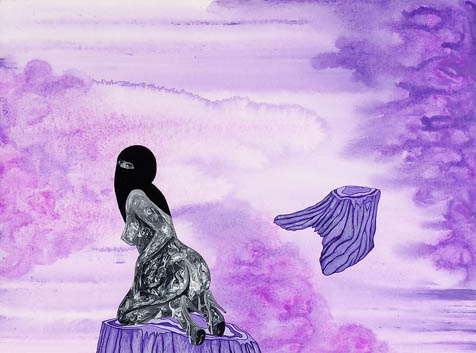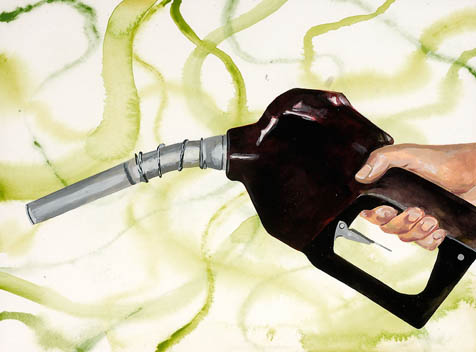
Viewers beware: Artist Kara Maria’s work is not for the faint of heart. In her show Paradise Lost, currently on exhibit at the Nathan Larramendy gallery, popular culture allusions merge with war iconography in an explosion of explicit display. For this particular show, Maria’s imagery reads like a catalog of a teenage boy’s obsessions: guns, nude women (oftentimes in compromising positions), comic books, cars, and fighter jets. Although mundane enough separately, these symbols of American culture take on a whole new level of power when combined. Paradise Lost requires a warning, not just for its sometimes graphic content, but because it engages the viewer on such a visceral and immediate level that it demands an equally charged emotional response.

Of course, it is precisely Maria’s goal to make the viewer squirm with discomfort. Two of her paintings, “Paradise Lost” (pictured, top image) and “The Magic Garden,” bring the viewer face to face with the searing and unforgettable images of prisoners from the Abu Ghraib prison scandal. Juxtaposed against bucolic, Van Gogh-esque landscapes, the nude figures are a study in the conflation of military power and sexual dominance. Maria explores this power dynamic further in “Bomber,” a work on paper in which a pornographic image of a woman floats in the direct path of a fighter jet. Here, the artist blurs the line between human exploitation and military prowess, painting with a delicacy that belies the violent overtones of the subject matter.

The reoccurring themes in this show-violence, the overtly sexual body, and the military-are familiar from many popular video games today, and going back further, from comic books. Maria gives a direct nod to Pop Art in “An Exercise of Freedom,” where her Rauschenberg overlays and Lichtenstein iconography converge in a collaged landscape of current events. But instead of the slightly sweeter consumer culture imagery used by her Pop Art predecessors, Maria’s vision of contemporary society comes in the form of SUVs, gas pumps, and pornography.
Maria’s work bombards the senses and effectively forces the viewer to take responsibility for the existence of the culture it represents. Paradise was lost, the artist seems to suggest, the moment such images began to represent contemporary culture.



